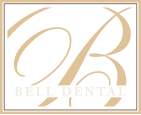Dental Bridge Options for Missing Front Teeth
 Tooth loss has a great impact on the health, function, and beauty of the smile. Fortunately, when permanent teeth are lost, there are several restorative dentistry treatments available to rebuild the smile. When someone has lost a single tooth, or up to three adjacent teeth, a dental bridge fills in the gap left by tooth loss.
Tooth loss has a great impact on the health, function, and beauty of the smile. Fortunately, when permanent teeth are lost, there are several restorative dentistry treatments available to rebuild the smile. When someone has lost a single tooth, or up to three adjacent teeth, a dental bridge fills in the gap left by tooth loss.
There are several different types of dental bridges available, each with their own unique applications. Here, the experienced team of dentists at Bell Dental, serving individuals in the Lake Jackson, TX, area, go over dental bridge options for the front teeth.
Traditional Dental Bridge
A traditional dental bridge is one of the most widely used types of bridges. Traditional dental bridges are a suitable solution for many of our Lake Jackson patients who have suffered tooth loss. Traditional dental bridges are made up of three parts: the pontic piece (which resembles the missing tooth, or teeth), and two dental crowns (one on either side of the gap left by missing teeth).
To be a candidate for a traditional dental bridge, patients must have two healthy, natural teeth immediately adjacent to the area of tooth loss. These teeth are reshaped and fitted with dental crowns that act as anchors to secure the pontic piece in place. A traditional dental bridge restores the strength and function of the smile, and is also an attractive restoration that blends in with the natural teeth, making it a great option for those who have lost teeth from the front of the mouth.
Implant-supported Bridge
Implant-supported bridges are another popular type of dental bridge. Implant-supported bridges rely on a pontic piece to replace missing teeth, just like a traditional bridge. However, an implant-supported bridge is anchored in place by dental implants, instead of dental crowns.
Dental implant treatment requires more procedures. First, the implants are surgically placed in the jawbone. After the implants have healed and fused with the patient’s bone tissues, abutments are put in place. Finally, the dental bridge is bonded to the abutments to rebuild the smile. Although the placement of an implant-supported bridge is more complex than that of a traditional bridge, it offers superior strength and stability, which many of our Lake Jackson patients prefer, especially when they are dealing with the loss of front teeth.
Cantilever Bridge
A cantilever bridge is very similar to a traditional bridge. It consists of a pontic piece that is secured by a dental crown. The primary difference is that a cantilever bridge is held in place with a single dental crown, instead of two crowns. A cantilever bridge is not widely used, but it may be an appropriate solution for patients who have a natural tooth on just one side of the area of tooth loss.
Because cantilever bridges are affixed to just one dental crown, they are not as secure as a traditional or implant-supported bridge. This type of bridge is not usually ideal for addressing missing back teeth. However, since the front teeth tend to sustain less force than the side or back teeth, a cantilever bridge may be suitable for tooth loss at the front of the mouth.
Maryland Bridge
A Maryland bridge is the least used type of bridge, because it has such limited applications. A Maryland bridge is made of a pontic piece that replicates the missing teeth. Maryland bridges are held in place by a porcelain or metal structure that is bonded to the back of the natural teeth on either side of the dental gap.
Maryland bridges are the least secure and durable type of dental bridge. However, if tooth loss is at the front of the mouth, where the patient will not bite down directly, and if a patient is looking for an affordable treatment option, the Maryland bridge may be the right solution.
Contact Us
If you have lost teeth from the front of the mouth, the dentists at Bell Dental can rebuild your smile so that it is, once again, healthy, attractive, and fully functional. To learn more about the restorative dentistry treatments available at our dental practice, send us a message online or call us at (979) 297-1201.



